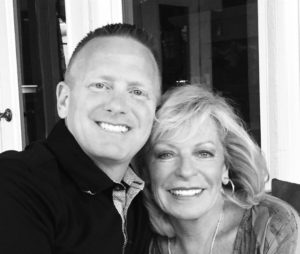In episode 27 of The HR Famous Podcast, long-time HR leaders (and friends) Tim Sackett, Kris Dunn, and Jessica Lee discuss 100K jobs with the least competition (spoiler – that means only really smart people should apply) and break down California going after Uber and Lyft with California Assembly Bill 5, which seeks to classify more contractors such as Uber/Lyft drivers into full-time employees
Listen (click this link if you don’t see the player below) and be sure to subscribe, rate, and review (Apple Podcasts) and follow (Spotify)!
2:30 – Tim and Kris decide Jessica is beginning to fall in love with Hamilton because her kids are watching and singing the songs all the time.
4:05 – The crew breaks down $100,000 salary jobs with the least competition, and most are technical and medical, except for the number one job.
6:30 – Tim is ranking doctors on which ones are the dumbest even though he could never be a doctor and passed out at the birth of all three of his kids.
10:30 – The crew decides which six-figure jobs should have been on the list but weren’t, and Tim shares how a used car salesman in his town has a way bigger house than he has, so he believes the best six-figure job with the least competition is probably great sales jobs because not many want to do sales, and very few are great at sales.
13:35 – KD wants the crew on a future episode to break down the best jobs for liberal art school grads. Also, Tesla, KD is open for an HR Famous sponsorship! KD has Tim break down what makes a great salesperson.
16:22 – The crew digs into California Assembly Bill 5 lawsuit by Uber and Lyft that puts in a three-prong test to determine is a person an employee or contractor, which has a major impact to Uber and Lyft drivers moving them from contractors to employees. Both Uber and Lyft have threatened to end operations in California if AB5 goes through.
18:45 – KD believes that ultimately the customers of Uber and Lyft will end up paying for this bill in the end, but Jessica disagrees and believes the market will answer the challenge to fill the void. Or that Uber and Lyft will find a middle-ground to continue business where they can have both employees and contractors.
21:55 – Californians will vote in November on an amendment to exempt rideshare companies from AB5 anyway, so does it really matter? Well, it might not for rideshare, but it could national impact on tech contractors, over the road drivers, etc.
22:30 – Tim hates California and believes doing business in California is the biggest pain in the ass in the entire world.
24:00 – The voice of reason Jessica comes in and explains how California should create a safety net for its citizens versus forcing companies to create the safety net by changing their employment status.
31:00 – KD asks the HR Famous crew what do we think Californian’s will do when voting in November in terms of amending AB5 and letting Uber and Lyft off the hook.
33:00 – Tim tells the crew he has to go because he’s having a Spirit Painting being done and has to go, but will update everybody next episode on the experience!

